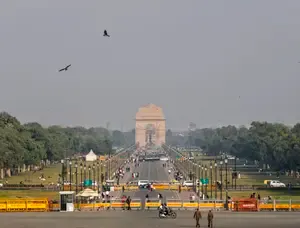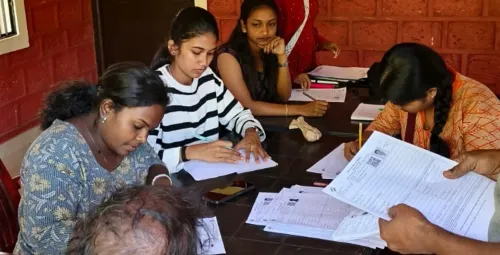Is GRAP's Stage 1 Withdrawn from Delhi-NCR as AQI Improves to 'Moderate'?

Synopsis
Key Takeaways
- Delhi's AQI improved to 140 after rainfall.
- The CAQM Sub-Committee lifted Stage-I restrictions.
- Future forecasts predict continued moderate air quality.
- Agencies must follow CAQM directives to maintain improvements.
- Continuous monitoring of air quality will occur.
New Delhi, June 15 (NationPress) Residents of Delhi enjoyed improved air quality following rainfall on Sunday morning, with the Air Quality Index (AQI) dropping to 140. This improvement led the Commission for Air Quality Management (CAQM) Sub-Committee to lift restrictions under Stage-I of the Graded Response Action Plan (GRAP).
According to a statement from the Ministry of Environment, Forest and Climate Change, "Delhi's AQI today is reported at 140 as per the daily AQI Bulletin from the Central Pollution Control Board (CPCB)."
Upon reviewing the air quality metrics and related factors, the Sub-Committee noted, "Delhi's AQI has steadily improved thanks to favorable weather conditions, with the AQI recorded as 140 on June 15, categorizing it as 'Moderate'. Forecasts from IMD/IITM also indicate that AQI is expected to remain in the 'Moderate' range in the coming days."
The statement further added, "Considering this trend of improvement and the forecasts predicting that Delhi’s air quality will remain in the 'Moderate' bracket in the near future, the CAQM Sub-Committee has unanimously agreed to revoke Stage-I of the existing GRAP across the entire NCR, effective immediately."
It was emphasized that state government agencies and the GNCTD in the NCR must ensure compliance with all statutory directives, advisories, and orders from the Commission to prevent the air quality from deteriorating to the 'Poor' category.
The Sub-Committee highlighted that all relevant agencies need to acknowledge various actions and timelines outlined in the comprehensive policy issued by the Commission aimed at mitigating air pollution in the NCR, especially concerning dust control measures.
"The Sub-Committee will continue to monitor the air quality situation closely and will reassess it periodically for further decisions based on the air quality in Delhi and forecasts provided by IMD/IITM," the statement concluded.









